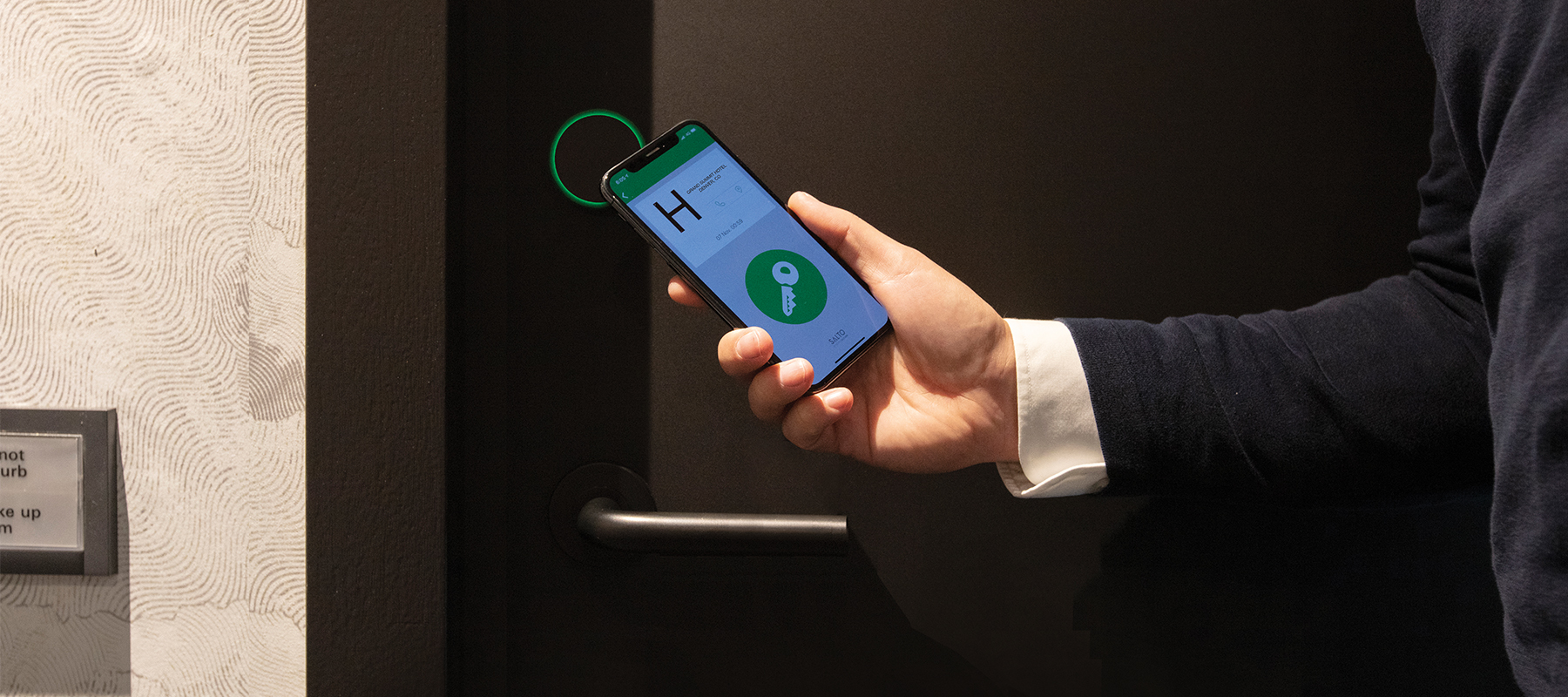Digital guest keys have come of age, overcoming many early hurdles, including technical issues, compatibility, and user adoption. Today, digital keys, accessed through a guest's smartphone, are becoming commonplace at upscale hotels and resorts and are expected to boom in popularity over the next few years. Research suggests that by 2025, mobile key adoption rates could soar above 70% in hotels worldwide. This shift is indicative of a broader trend: as people become increasingly reliant on their smartphones for a myriad of daily tasks, mobile keys are poised to become the new standard in the hospitality sector.
Enhancing Guest Experience and Efficiency
Cornell University’s School of Hotel Administration has highlighted the impact of waiting times on guest satisfaction, noting that a mere five-minute delay at check-in can cut guest satisfaction by as much as 50%. The advent of online check-in, coupled with the deployment of digital room keys, offers a solution. This technology allows guests to skip the front desk entirely and head straight to their rooms, significantly enhancing their overall experience by saving time and reducing stress.

Beyond Convenience: Safety and Operational Benefits
Digital keys offer more than just convenience; they are a cornerstone for enhancing guest safety and streamlining hotel operations. Their integration with smart home technology and the Internet of Things (IoT) is particularly noteworthy. Modern hospitality apps, when used in conjunction with mobile keys, enable guests to control various aspects of their room environment, such as lighting, temperature, and entertainment systems, directly from their smartphones. This integration creates a unified, seamless experience, allowing guests to unlock their rooms, adjust settings, and access hotel amenities through a single application.

For hoteliers, the transition to digital keys represents a dual benefit. Not only does it streamline the check-in process, but it also frees up staff to focus on providing more personalized and attentive service to guests. As technological advancements continue, it's clear that digital keys are set to become a standard feature in the hospitality industry, linking every aspect of the guest experience together.
Digital key technology represents an important step forward for the hospitality industry. The advantages for both hotels and guests ensure that mobile keys will play a key role in the industry's future.

Security Advantages of Digital Keys
Security and privacy are paramount in the digital age, and digital keys excel in these areas. Traditional keys and plastic key cards are prone to being copied, lost, or stolen. In contrast, digital keys offer a higher level of security, as access is granted through guests' smartphones, which are usually protected by passcodes or biometric authentication. Advanced encryption protocols ensure that digital keys are unique to each guest and securely managed, mitigating the risk of unauthorized access.
"Our priority at Salto, is to empower our hotel customers to deliver an outstanding and secure guest experience, by leveraging cutting-edge security features and ensuring the highest standards of safety," says Roland Smith, Hospitality Industry Solutions Leader at Salto.
Economic and Environmental Impacts
Beyond enhancing security, digital keys are also economically beneficial for hotels. They reduce the need for front desk staffing and lower the overall cost of key management. Physical keycards, which can cost hotels between $2 and $10 each, are replaced by digital keys, which incur virtually no marginal cost. This shift not only saves money but also aligns with environmental sustainability efforts by reducing plastic waste.

The transition to mobile keys, while initially challenging due to upfront costs and training requirements, is a strategic investment for the future of the hospitality industry. Digital keys promise to improve the guest experience by making hotel stays more efficient, personalized, and secure.
Unlocking the Future: A Transformative Trend in Hospitality
Mobile keys are an exciting innovation for the hospitality industry that provides numerous benefits for hotels and guests. While switching to mobile keys involves challenges like upfront costs and learning curves, the long-term benefits make it a worthwhile investment.
In conclusion, the shift towards mobile room keys in the hospitality industry is a trend driven by the growing dependency on smartphones and the demand for seamless, secure, and efficient guest experiences. Digital keys are transforming hotels into smarter, more connected spaces, where the emphasis is on ease, personalization, and security. As this technology continues to evolve and integrate with other smart systems, its role in reshaping the hospitality landscape will undoubtedly expand, marking a significant step forward in how hotels operate and serve their guests.
The future of hotel access technology is the ability to improve the guest experience and to make hotel operations more efficient—mobile keys make this a reality.
Related Stories
| Aug 11, 2010
Charlotte hospital expands its surgery capabilities
The Chicago office of RTKL designed Carolinas HealthCare System's Mercy Medical Plaza, Charlotte, N.C. The 150,000-sf hospital houses 12 operating rooms with expanded pre-operative and recovery space, a pharmacy, and a central sterile processing unit. Tenant space occupies 75,000 sf. RTKL mimicked the materials and mass of older buildings on the campus but created a more modern look by using ex...
| Aug 11, 2010
And the world's tallest building is…
At more than 2,600 feet high, the Burj Dubai (right) can still lay claim to the title of world's tallest building—although like all other super-tall buildings, its exact height will have to be recalculated now that the Council on Tall Buildings and Urban Habitat (CTBUH) announced a change to its height criteria.
| Aug 11, 2010
Spa resort in harmony with mountain setting
The Sparkling Hill Resort and Wellness Hotel in Vernon, B.C., looks as if it was chiseled out of bedrock and jutting from the mountainside. Designed by the Victoria, B.C., office of Cannon Design, the 240,000-sf resort has 152 guest rooms with floor-to-ceiling windows and spa-like bathrooms, as well as a signature 20,000-sf whole-body wellness spa with treatment rooms designed to feel like they...
| Aug 11, 2010
Triangular tower targets travelers
Chicago-based Goettsch Partners is designing a new mixed-use high-rise for the Chinese city of Dalian, located on the Yellow Sea coast. Developed by Hong Kong-based China Resources Land Limited, the tower will have almost 1.1 million sf, which includes a 377-room Grand Hyatt hotel, 84 apartments, three restaurants, banquet space, and a spa and fitness center.
| Aug 11, 2010
Expanding retail complex is LEED pre-certified
The Promenade at Coconut Creek in Broward County, Fla., a live-work-play shopping and lifestyle center, is being expanded by 105,000 sf. When phase II of the 335,000-sf project is complete, the facility will house 75 retailers, restaurants, and related services, making it one of the largest mixed-use projects in northern Broward County.
| Aug 11, 2010
CityCenter projects get LEED Gold
MGM Mirage and Infinity World Development have received LEED Gold certification for the first three CityCenter projects: the ARIA Resort hotel tower, ARIA Resort convention center and theater, and the Vdara Hotel (above). The CityCenter developers anticipate Gold or Silver LEED certification for the project's remaining developments, which include a Mandarin Oriental hotel, a 500,000-sf retail a...
| Aug 11, 2010
Philadelphia cancer center seeks LEED certification
The New York office of Thornton Tomasetti provided structural engineering services for the Ruth and Raymond Perelman Center for Advanced Medicine in Philadelphia, a $232 million medical research center and advanced treatment center for cancer and cardiovascular disease. Designed by a joint venture of Perkins Eastman Architects and Rafael Vinõly Architects, the 340,000-sf facility will hous...
| Aug 11, 2010
High-level NICU opens in Washington, D.C.
Design to the highest distinction available by the American Academy of Pediatrics, the new Level IIIC neonatal intensive care unit (NICU) at Children's National Medical Center in Washington D.C., is equipped to care for the sickest premature babies, including those that require open-heart surgery. The 54-bed facility, designed by Karlsberger with KLMK Group as space planner, is four times large...
| Aug 11, 2010
RMJM unveils design details for $1B green development in Turkey
RMJM has unveiled the design for the $1 billion Varyap Meridian development it is master planning in Istanbul, Turkey's Atasehir district, a new residential and business district. Set on a highly visible site that features panoramic views stretching from the Bosporus Strait in the west to the Sea of Marmara to the south, the 372,000-square-meter development includes a 60-story tower, 1,500 resi...
| Aug 11, 2010
San Bernardino health center doubles in size
Temecula, Calif.-based EDGE was awarded the contract for California State University San Bernardino's health center renovation and expansion. The two-phase, $4 million project was designed by RSK Associates, San Francisco, and includes an 11,000-sf, tilt-up concrete expansion—which doubles the size of the facility—and site and infrastructure work.







